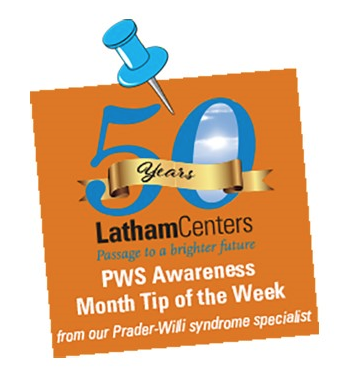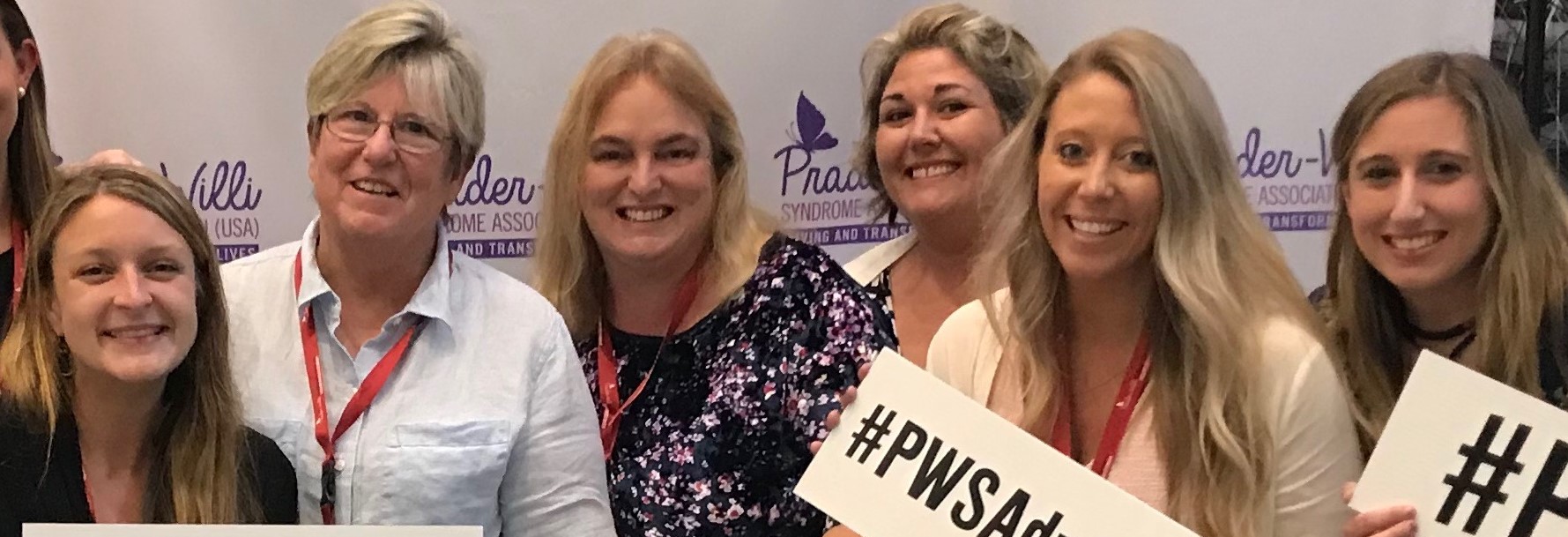Tip of the Week: PWS Awareness (Prader-Willi tips ‘Week 1’)
May 8, 2020

In honor of Prader-Willi Syndrome Awareness Month, Latham Centers shares a “Tip of the Day” on social media throughout the month of May. Here are this week’s tips:
-
For individuals with PWS, swallowing issues are common, putting the child or adult at a higher risk of choking. To lessen the risk of choking, encourage small bites with sips of liquid after each bite.
-
People with PWS often feel off-balance and can be hesitant to walk on uneven terrain. Any activity that exercises their vestibular sense can improve their ability to walk confidently on any surface.
-
Sleep issues are common in people with PWS. Daytime fatigue and lack of energy can be helped with scheduled naps for both children and adults.
-
Dental issues in people with PWS often start at a young age and can last throughout adulthood. Thick saliva, picking at gums or the tongue, poor overall dental hygiene, and rumination are all contributing factors. Low muscle tone and challenges with fine motor control make proper teeth brushing especially difficult.
-
Bug bites present a unique set of issues for our kids. Skin picking sites often start with a bug bite and we all know how quickly those can get out of control. Prevention is key— use bug spray, avoid bright-colored clothing, and cover arms and legs when walking through the woods or near standing water.
-
Siblings of kids with special needs have unique challenges. Some kids may feel angry at their sibling with special needs because they may feel that they are not as important, or that all the attention goes to their sibling. They may feel that many family plans get ruined or postponed because of their sibling’s behaviors. These are natural and expected feelings. As your children get older, it will be easier to explain more complex concepts and with age often comes greater empathy and understanding. Ultimately the siblings of our kids with PWS will be the people responsible for their care and support in the later years. Studies have shown that siblings of children with special needs grow up to be adults who show greater flexibility, tolerance, compassion, sensitivity, and problem-solving skills than those with typical siblings.
-
Individuals with PWS have a very high pain tolerance. Complaints of pain, especially abdominal pain, should be taken seriously and evaluated by a physician.
Though there are many challenges associated with PWS, there is also an endless list of positives and strengths. We never want to forget the wonderful qualities that our kids have despite some challenges along the way.

Patrice Carroll, Latham Centers’ Director of PWS Services, is world-renowned for her Prader-Willi syndrome expertise. She works with Latham students and residents, their families, and other experts, continuously learning and teaching about PWS best practices. If you have PWS-related questions, we invite you to email TipTopics@LathamCenters.org.
